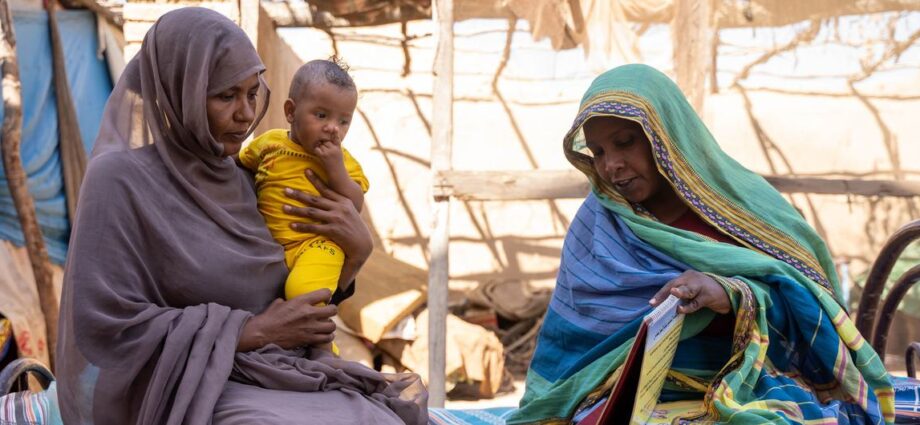El Fasher , April 27(Darfur 24)
Thousands of IDPs affected by the war who fled their homes as a result of the battles between the Sudanese army and the Rapid Support Forces in the city of El Fasher are facing tragic conditions in Abu Shouk camp.
It is feared that the expected battles will lead the army, the Rapid Support Forces, and the movements and militias allied with them, to exacerbate the humanitarian situation in light of the faltering arrival of supplies.
The head of the civil administration in Abu Shouk camp, Mayor Adam Abdullah Muhammad Sharaf, said in a statement to “Darfur 24” on Saturday: The lack of food, medicine, and water scarcity exacerbated the conditions of the displaced people in the camp.
Sharaf revealed that the total number of displaced people in Abu Shouk camp, according to the latest statistics of the Thamarat program, was 252 thousand families who remained without aid for more than 20 months, before some aid reached only 19 thousand families recently, and it was distributed to them, but it did not meet their needs.
Sharaf stated that before the war, which entered its second year, the displaced were practicing agriculture and doing marginal work, but all of that stopped due to this conflict.
Sharaf revealed that aid was provided by Saudi Arabia and some other Gulf countries to all states of Darfur, sufficient for the majority of the displaced and those affected by the war, but the mismanagement of the Humanitarian Aid Commission, in addition to the interference of what he called hidden hands, in that aid, which exacerbated the suffering of the old and new displaced.
Sharaf accused the organizations working in the humanitarian field of marginalizing the displaced in the shelter centers in the northern sector and that they justified not providing aid to them due to lack of security.
He pointed out that they informed the head of the High Commissioner for Refugees in conjunction with his recent visit to the city of El Fasher regarding the suffering of the displaced, but he attributed the delay in the arrival of aid to the clashes that the city of Mellit recently witnessed, which in turn suspended humanitarian and commercial convoys coming from Al-Dabba, River Nile State.
In turn, the head of the shelter centers for the displaced in the northern sector, Ahmed Muhammad Adam, told “Darfur 24” that hunger has now begun to knock on the doors of the majority of the displaced, forcing families to push their children to beg, before he accused parties within the Humanitarian Commission in North Darfur of manipulating relief for the displaced.
The official for the displaced at the Humanitarian Aid Commission in North Darfur, Hassan Saber, denied these accusations, citing in a statement to “Darfur 24” that the worsening suffering of the displaced was due to the cessation of humanitarian convoys coming to the Darfur region.
The Rapid Support Forces tightened the siege they imposed on the city of El Fasher, North Darfur, by mobilizing hundreds of new fighters on the outskirts of the city, which exacerbates the conditions of civilians, especially the displaced.
The Sudanese army and armed movement forces strengthened their defenses south of the Zamzam camp for displaced persons, and a number of cars were seen being pushed and trenches dug around the city in an attempt to prevent the Rapid Support Forces from entering the city from the south.

